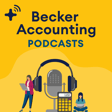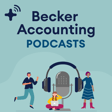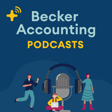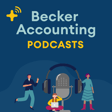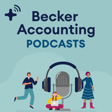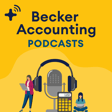
Balancing the Future Ep. 3 - Access is Key with Damian Rivera
CEO of the Association of Latino Professionals for America (ALPFA), Damian Rivera, shares his unusual career path from engineering to corporate executive to non-profit leader. His passion for giving back to his community spurred his entry into ALPFA leadership, where 60-65% of members are accountants. Convinced of the power of an accounting degree to revolutionize entrepreneurship and small businesses nationwide, Damian is committed to offering access to infrastructure, education, and opportunities in the field.
Earn CPE by listening to this podcast through a Becker Prime CPE subscription.
Listen to this episode through your Becker LMS platform to complete practice questions, pass the final exam, and earn CPE credit.
Already a Becker Prime CPE customer? Login here.
Have access to Becker CPE through your employer? Earn CPE credit for this podcast however you consume Becker CPE, either through your company’s LMS or via the Becker platform. Not sure where to log in? Check with your CPE admin.
Learn more about CPE Podcasts from Becker: https://www.becker.com/cpe/becker-podcasts
